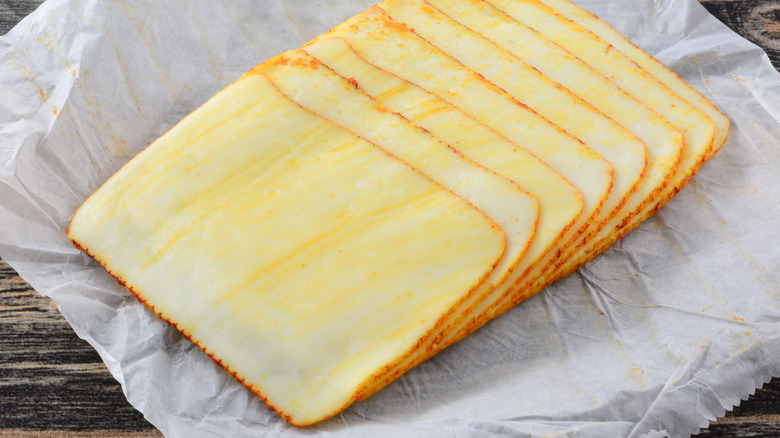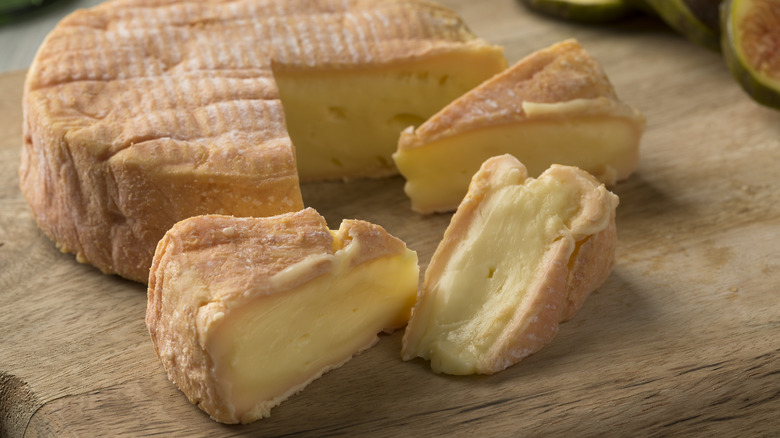Muenster Cheese's Path From France To The US
The story of Muenster cheese in the U.S. ends in Wisconsin, though that fact doesn't really make it unique. Wisconsin produces a lot of cheese, so much so that it's the top cheese-producing state in the country. Responsible for 26% of the country's cheese, Wisconsin transforms about 90% of the milk produced by the state's dairy farms (that's about 23 billion pounds of milk each year) into cheese (via Cuba City). Though Wisconsin makes more than 350 kinds of cheese, Muenster is an essential variety for the state; roughly 67% of all the Muenster produced in the U.S. comes from Wisconsin.
What features distinguish Muenster from other varieties of cheese? It's a semi-soft cheese that Wisconsin Cheese describes as having an "orange surface and a handsome creamy white interior." In terms of flavor, it's relatively mild, with nutty notes, and it's beloved for being a wonderful cheese for melting, making it a shoo-in selection for a luxe grilled cheese. But while the story of Muenster may end in Wisconsin, that's not where the story began.
Where did Muenster cheese originate?
Muenster cheese is either French or German in origin, depending on who you ask, and that's because the region that originally produced it — Alsace — has been part of both Germany and France over the course of history, The Kitchen Community explains. Shisler's Cheese House points out that it was Benedictine monks in the Vosges Mountains of Alsace who first made this style of cheese, and the name comes from the monasteries these monks inhabited. The French style of cheese is typically called Munster, according to Wisconsin Cheese, and it's made from unpasteurized cow's milk, using a washed rind process that makes the French version considerably more pungent than the U.S.-made Muenster cheese and also turns the rind orange (per Robust Kitchen). Wisconsin Muenster, by contrast, gets its orange exterior from annato, a natural vegetable dye.
Wisconsin Cheese explains that French immigrants in the late 1800s who settled in Wisconsin began making Muenster, adapting the French process to create the milder version of the cheese we know and love today. While Muenster is delicious on sandwiches, particularly grilled cheeses, it's also delightful on its own, and Robust Kitchen recommends pairing it with flavorful beers like a porter or black lager.

